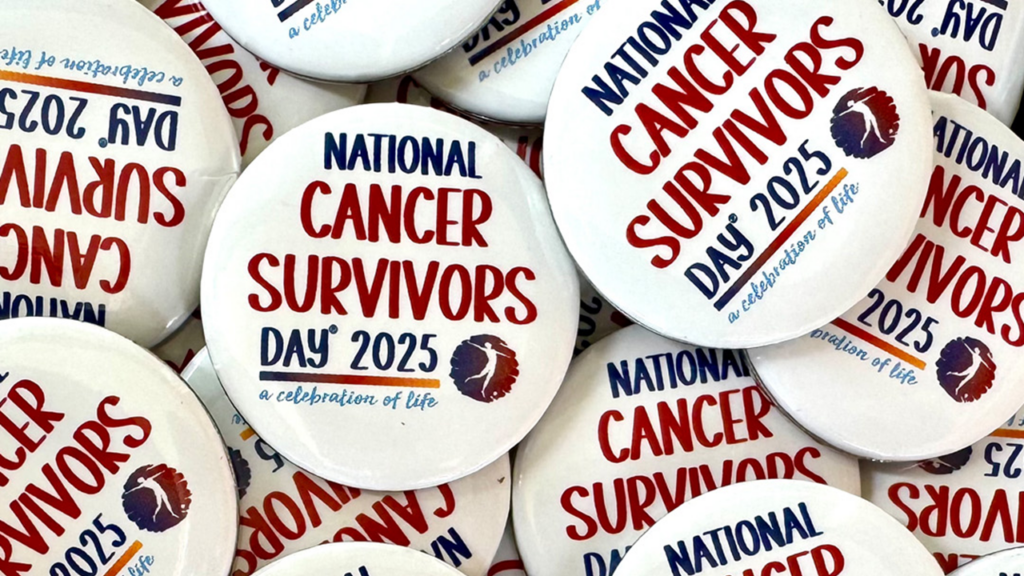On Sunday, June 1, 2025, communities will observe the 38th annual National Cancer Survivors Day — a day to recognize the 18,060,100 cancer survivors in the US and the over 53.5 million cancer survivors worldwide in the last five years.
This year’s official theme of National Cancer Survivors Day 2025, “Celebrating Life, Raising Awareness and Inspiring Hope for the Future,” acknowledges the ongoing challenges survivors face long after treatment ends.
Survivorship involves not only living but managing persistent health effects, financial burdens and risks of recurrence or new cancers.
What Is National Cancer Survivors Day?
National Cancer Survivors Day is a reminder that a survivor is anyone living with a history of cancer, from the moment of diagnosis through the rest of their life.
Celebrations on this day highlight survivors’ strength, resilience and the ongoing need for resources and research to ensure their well-being.
The Current Landscape of Cancer Survivorship
According to the American Cancer Society’s Cancer Treatment & Survivorship Facts & Figures 2022-2024 report, as of January 1, 2022, the majority of cancer survivors (69%) were diagnosed five or more years ago, and 18% were diagnosed 20 or more years ago. Among cancer survivors in the US, 67% were aged 65 or older, and 10% were under the age of 50.
Among these, breast cancer in women (4,055,770) and prostate cancer in men (3,523,230) are the most prevalent, with significant numbers for colorectal cancer (710,670 for women and 726,450 for men) and melanoma (713,790 for women and 760,640 for men).
Many survivors continue to face long-term financial hardships, nearly one-third of those aged 18 to 49 years, often compounded by high out-of-pocket medical costs and reduced work capacity. Survivors also face a heightened risk of recurrence and subsequent cancers, especially those treated with radiation or with genetic predispositions.
Not only that, the fear of cancer recurrence reportedly affects nearly 59% of survivors and patients, with about one in five experiencing high levels that could benefit from targeted psychological support. This concern spans cancer types, highlighting the importance of integrating mental health care into survivorship planning.
The economic burden of cancer care in the US reached $21 billion in 2019, and about 20% of clinical trials close prematurely due to low enrollment. These realities highlight the importance of improved access to clinical trials, balanced pain management, palliative care and financial protections.
Research and Clinical Advances Supporting Survivorship
The 10th annual LUNG FORCE Advocacy Day exemplifies how survivor voices can directly impact policy and research, driving a 142% increase in NIH funding for lung cancer research and supporting 67 new FDA-approved lung cancer therapies.
Meanwhile, advancements in precision medicine are reshaping how survivors experience life after cancer. EXACT Therapeutics’ final Phase I ACTIVATE trial results showcased how Acoustic Cluster Therapy can enhance chemotherapy’s impact on liver metastases in colorectal cancer, with tumor shrinkage of 29% compared to 7% for chemotherapy alone.
Revolution Medicines is also making strides with its Phase III RASolve 301 trial of daraxonrasib for RAS mutant NSCLC, addressing a driver mutation present in nearly 30% of lung cancer cases. Targeted therapies like these represent a shift in how treatment is personalized to improve survival outcomes.
A recent Sermo survey of over 300 oncologists highlights insurance-related delays in accessing advanced treatments, with 80% citing these barriers and 93% anticipating immunotherapy to play an even greater role in care over the next five years. Such findings could be pivotal for those working on trial design, policy reform or reimbursement strategies.
Holistic wellness programs are also gaining attention. SurvivorRx, co-founded by an oncologist and caregiver, offers personalized supplements tailored to survivors’ needs, emphasizing integrative approaches to survivorship care.
Meanwhile, initiatives like the Tina Wellman Grant — which supports undergraduate cancer survivors pursuing healthcare careers — demonstrate how survivor experiences can inform and strengthen future care delivery through an empathy-driven approach to medicine.
Hopefully, through these collective actions and the progress in research, policy and personalized care, cancer survivorship can mean that a survivor can truly thrive.
If you want your company to be featured on Xtalks.com, please email [email protected].












Join or login to leave a comment
JOIN LOGIN